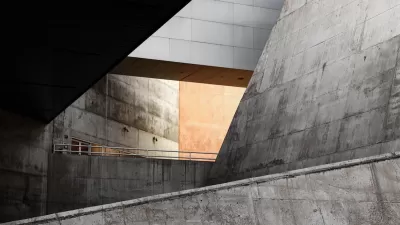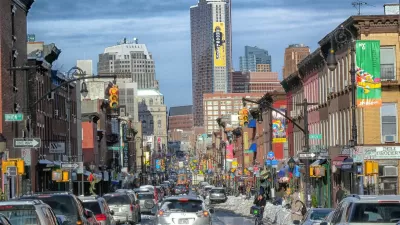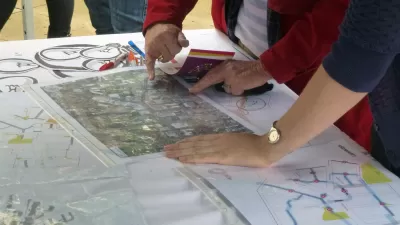In the aftermath of Hurricane Irene, Fast Company's Boyd Cohen writes how New York City's preparedness for Hurricane's should include enhancing infrastructure in things like the Internet and transit.
Stories of people without wifi and power that flooded Starbucks and Dunkin Donuts calls for a more expansive internet infrastructure, Cohen argues.
"What if GPS, Wi-Fi and mobile technology were completely ubiquitous in all parts of the city, including the poorest parts? City administrators could enter in the GPS coordinates of everything from at-risk neighborhoods and rivers to the location of the nearest safe shelters, the nearest transit option to escape the city to higher ground and the nearest available potable water sources and much more. Assuming all citizens had access to GPS-enabled devices, citizens in distress could indicate with a text to 911 that they were in trouble and the GPS coordinates would be instantaneously available to first responders. With some kind of opt-in system, residents could even receive real-time text updates tied to their GPS coordinates."
"Smart Transit" hasn't arrived completely, Cohen says, but it is already on it's on the right track.
"The Helsinki Journey Planner, for example, has an open data protocol to enable city websites and third party developers to tap into the transit system and provide real-time data on transit schedules. "
FULL STORY: If New York City Becomes The "Smartest" City In The World, How Will It Prepare For Future Hurricanes?

What ‘The Brutalist’ Teaches Us About Modern Cities
How architecture and urban landscapes reflect the trauma and dysfunction of the post-war experience.

‘Complete Streets’ Webpage Deleted in Federal Purge
Basic resources and information on building bike lanes and sidewalks, formerly housed on the government’s Complete Streets website, are now gone.

The VW Bus is Back — Now as an Electric Minivan
Volkswagen’s ID. Buzz reimagines its iconic Bus as a fully electric minivan, blending retro design with modern technology, a 231-mile range, and practical versatility to offer a stylish yet functional EV for the future.

Healing Through Parks: Altadena’s Path to Recovery After the Eaton Fire
In the wake of the Eaton Fire, Altadena is uniting to restore Loma Alta Park, creating a renewed space for recreation, community gathering, and resilience.

San Diego to Rescind Multi-Unit ADU Rule
The city wants to close a loophole that allowed developers to build apartment buildings on single-family lots as ADUs.

Electric Vehicles for All? Study Finds Disparities in Access and Incentives
A new UCLA study finds that while California has made progress in electric vehicle adoption, disadvantaged communities remain underserved in EV incentives, ownership, and charging access, requiring targeted policy changes to advance equity.
Urban Design for Planners 1: Software Tools
This six-course series explores essential urban design concepts using open source software and equips planners with the tools they need to participate fully in the urban design process.
Planning for Universal Design
Learn the tools for implementing Universal Design in planning regulations.
City of Albany
UCLA Lewis Center for Regional Policy Studies
Mpact (formerly Rail~Volution)
Chaddick Institute at DePaul University
City of Piedmont, CA
Great Falls Development Authority, Inc.
HUDs Office of Policy Development and Research




























